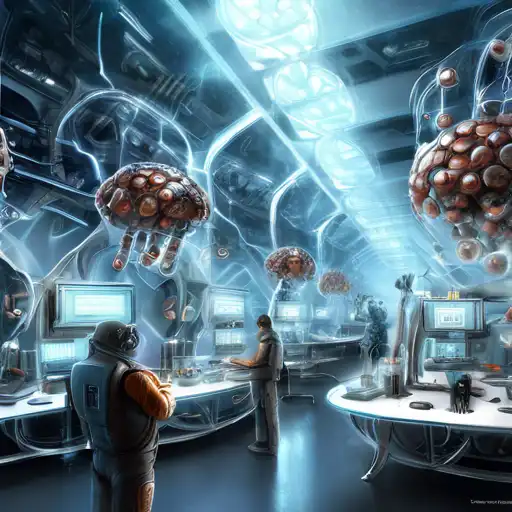Nanotechnology: Tiny Innovations with Massive Potential
In the realm of modern science and technology, nanotechnology stands out as a groundbreaking field that manipulates matter at an atomic or molecular scale. This tiny tech is making a big impact across various industries, from healthcare to electronics, offering solutions that were once considered impossible.
What is Nanotechnology?
Nanotechnology involves the engineering of functional systems at the molecular scale. This includes the creation and use of materials, devices, and systems through the control of matter on the nanometer length scale, roughly 1 to 100 nanometers. To put this into perspective, a single nanometer is one-billionth of a meter.
The Impact of Nanotechnology
The applications of nanotechnology are vast and varied. In medicine, for example, nanotechnology is being used to develop targeted drug delivery systems that can attack cancer cells without harming healthy ones. In electronics, it has led to the development of smaller, faster, and more efficient devices. Environmental applications include water purification systems and solar panels that are more efficient thanks to nanotech innovations.
Future Prospects
The potential of nanotechnology is limitless. Researchers are exploring ways to use nanotechnology in energy storage, creating batteries that charge in seconds and last for weeks. In agriculture, nanotechnology could lead to the development of smart fertilizers that release nutrients only when needed, reducing waste and environmental impact.
Challenges and Considerations
Despite its potential, nanotechnology faces challenges, including ethical, environmental, and health concerns. The long-term effects of nanoparticles on human health and the environment are still being studied. It's crucial to balance innovation with safety to ensure that nanotechnology develops in a way that benefits society as a whole.
For more insights into how technology is shaping our future, check out our articles on innovation and future tech.
Conclusion
Nanotechnology may be small in scale, but its impact is anything but. As we continue to explore and understand this fascinating field, we can expect to see even more revolutionary applications that will change the way we live, work, and interact with the world around us. The future of nanotechnology is bright, and its potential to solve some of the world's most pressing problems is immense.
